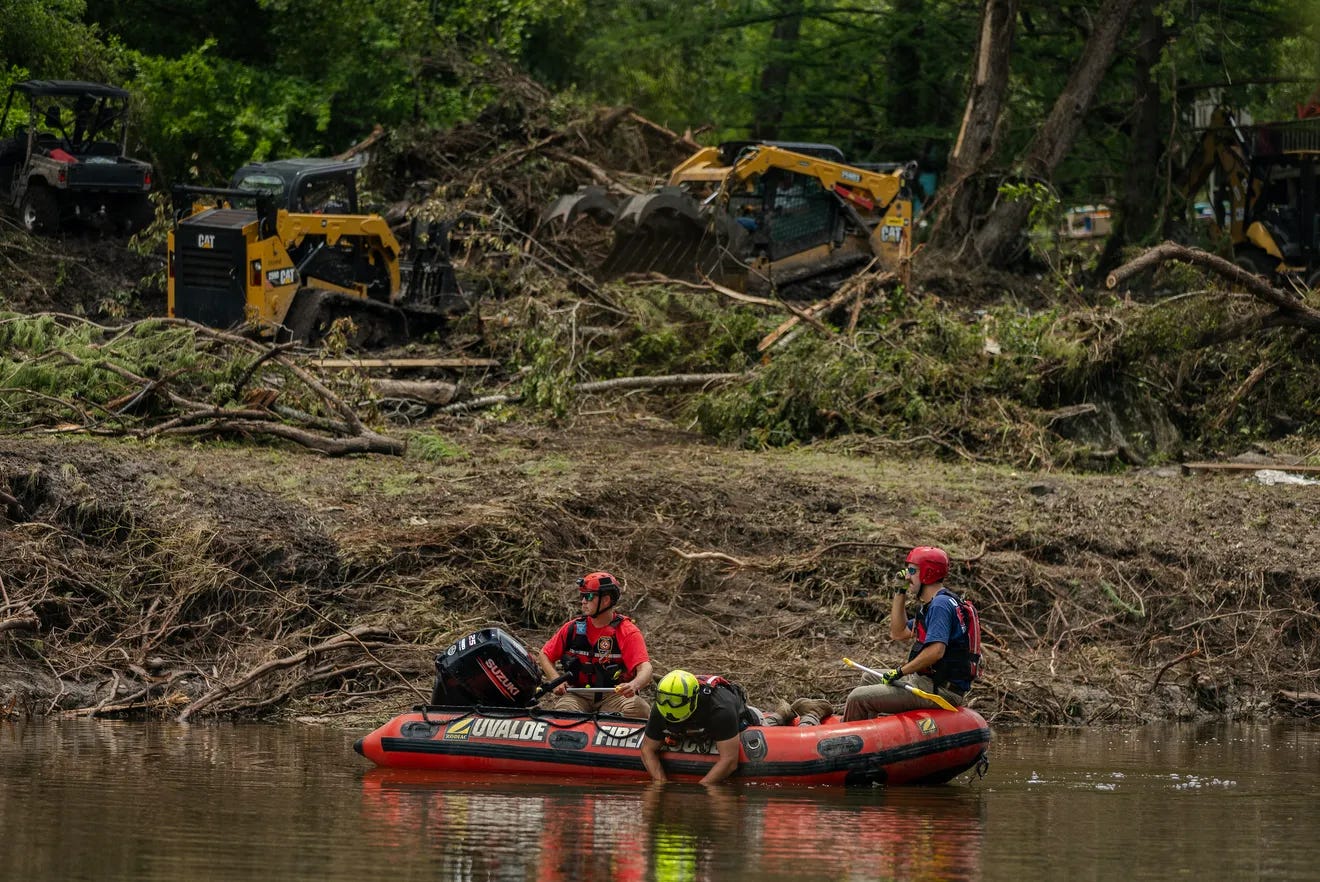Deadly Floods in Texas: What Went Wrong, What We Must Fix, and Why It Matters
Science, Politics, Systems
Over 100 lives lost. At least 27 of them were children and camp counselors at Camp Mystic. Eleven children are still missing. Flash floods in Central Texas turned a place of joy into a scene of devastation. This wasn’t a freak accident. This wasn’t just bad luck. And it absolutely didn’t have to end like this.
The emergency alert? It came hours too late. By the time the warnings buzzed phones and lit up screens, the water had already risen. People were already dying. Entire families were swept away while they slept. And as we mourn and demand answers, we also have to confront a brutal truth: this tragedy was preventable.
We need to look at the systems meant to protect us, why they failed, who defunded them, and how climate change is making disasters like this more deadly. Because this flood, like so many disasters, is political. It’s scientific. And it’s systemic.
Timing, and when warnings didn’t arrive in time
The narrative that no one warned people simply isn’t true. Warnings were issued, but hours too late. The first flash flood watch came around 1:18 pm, and a warning via FEMA later at 1:14 am. By 4:03 am, the National Weather Service issued an urgent warning of catastrophic damage. But in the communities, the floodwaters had already overwhelmed roads and cabins. Families were out of time.




